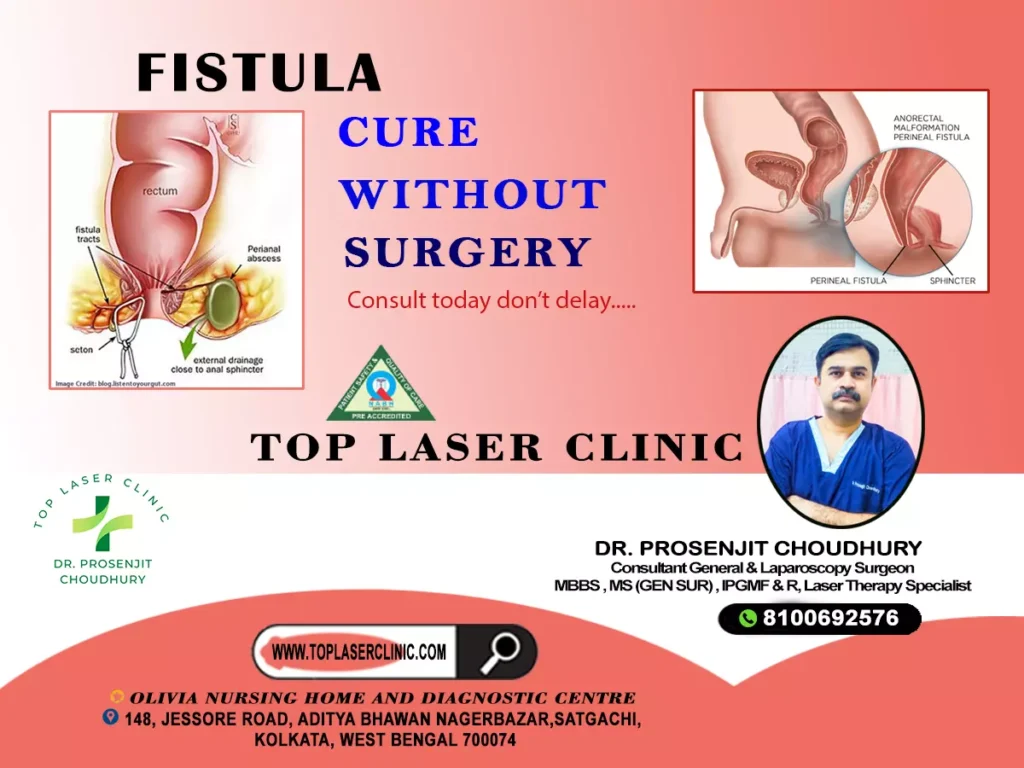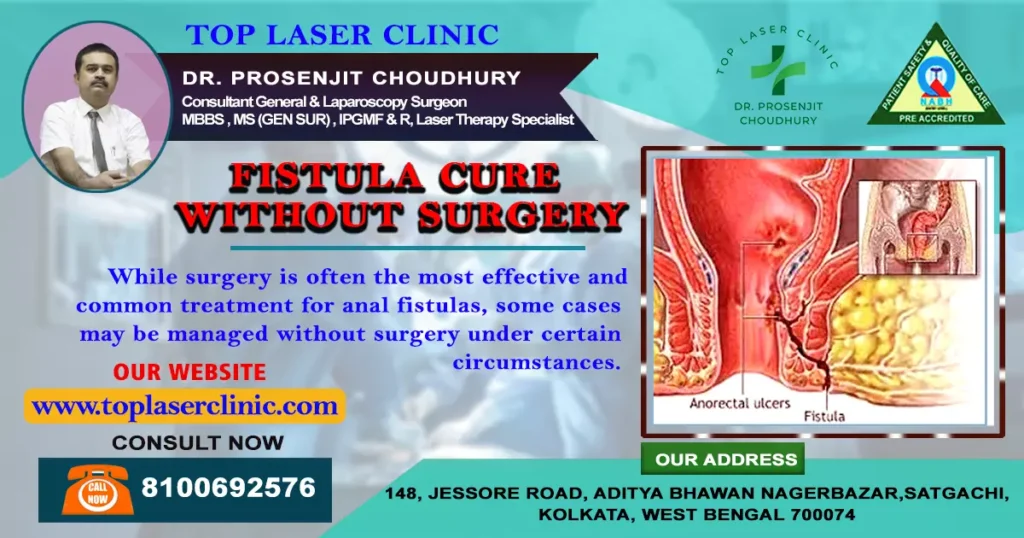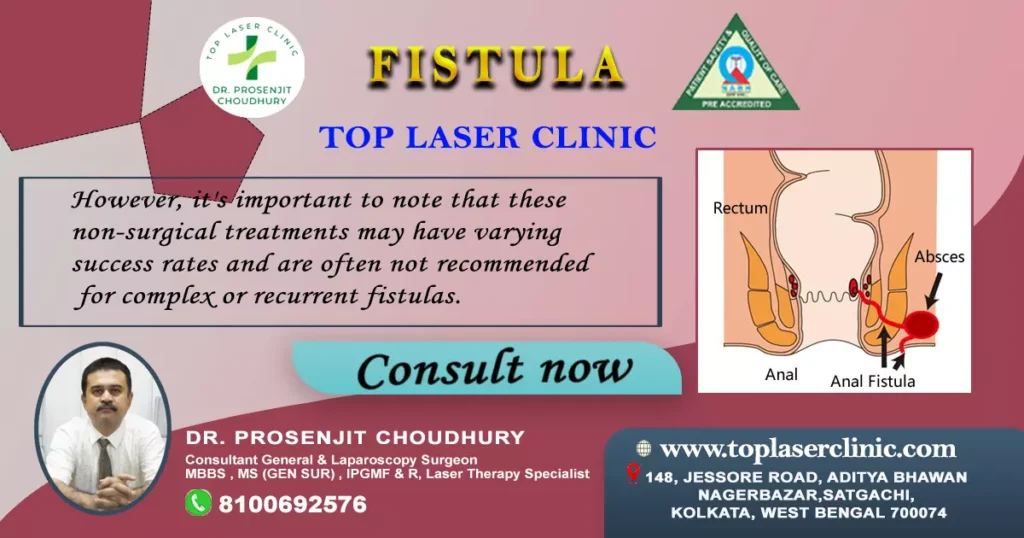
Table of Contents
While surgery is often the most effective and common treatment for anal fistulas, some cases may be managed without surgery under certain circumstances. fistula cure without surgery can be challenging, as surgical intervention is often necessary to fully resolve the condition.
However, there are some non-surgical treatment options that may be considered in certain cases.
Here are some non-surgical treatments that might be considered:

1. Antibiotics:
If there is an active infection or abscess, antibiotics may be prescribed to help control the infection and reduce inflammation. While antibiotics can address the infection temporarily, they are not a definitive cure for the fistula itself.
2. Fistulotomy with Seton Placement:
In some cases, a minimally invasive procedure called “fistulotomy with seton placement” may be performed. A seton is a piece of surgical thread or other material that is passed through the fistula tract and left in place. This helps to promote drainage and prevent from closing prematurely. The seton gradually cuts through the fistula, allowing it to heal over time.
3. Fistula Plug:
Another choice is to use a biodegradable plug that is inserted into the fistula tract to encourage healing and closure. This approach is suitable for certain types of low and straight fistulas.
4. Fibrin Glue:
Fibrin glue can be injected into the fistula tract to seal it off and encourage healing. However, this method is typically more effective for simple, low fistulas.
5. LIFT Procedure:
The LIFT (ligation of intersphincteric fistula tract) procedure is a non-cutting technique that involves the ligation of the fistula tract to promote healing. Typically,this surgery is performed to treat specific forms of complicated fistulas.

To summarize
However, it’s important to note that these non-surgical treatments may have varying success rates and are often not recommended for complex or recurrent fistulas. In most cases, surgical intervention is the most effective and reliable method for the treatment , particularly complex or recurrent cases.
The type, location, and intricacy of the fistula, as well as the patient’s general condition, all influence the therapy option.It’s important to consult with a healthcare professional to determine the most appropriate treatment plan for your individual case.